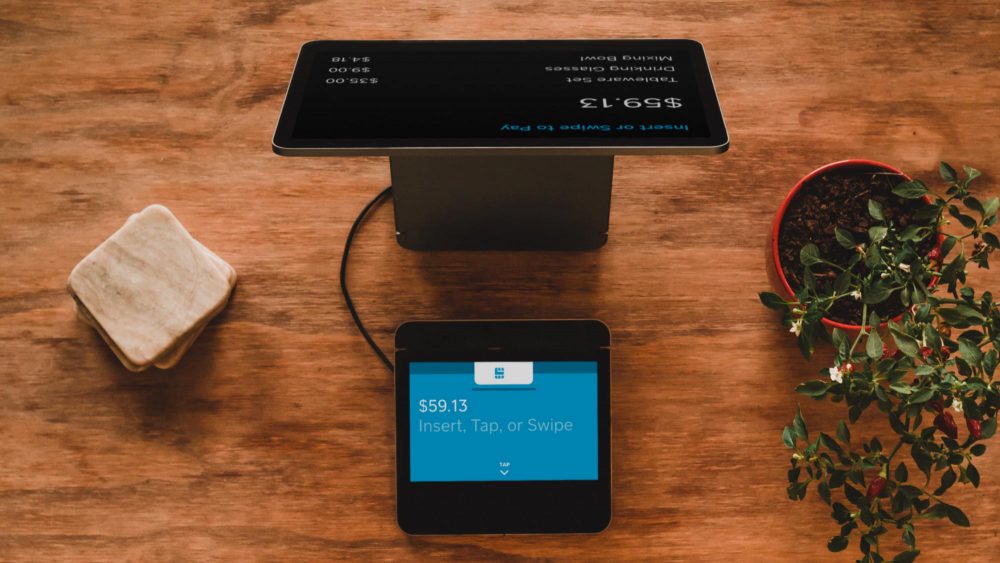5 Ways to Build an Influential Brand that Every Leader Needs to Know
September 16, 2018
Jeremy Wells
The bottom line – as a business owner you want your business to grow. If you don’t, then you should probably question whether or not you should be a business owner. What’s the most common indicator that your business is growing? You’re making more money.
This is true for every business, non-profit, and individual. People don’t like to talk about making money, but the truth is we need money to operate. But what’s the best way to earn more money? It may be tempting to start throwing out tactics, buzzwords, and strategies like: “You need to innovate”, “You must diversify”, “You need to penetrate the market”, “You need to build a sales funnel”, “You need more Instagram followers”…. yadda, yadda, yadda.
Don’t get me wrong, these are all valid methods to consider and could play a large part in how you operate your business. But, for a business owner who’s growth has flat-lined and is struggling to keep up, “penetrating the market” means nothing. If you’re tired of just surviving as a business and ready to start thriving, I’ve got good news for you – it may be more simple than you think. Humor me if you will, and allow me to give you a more simplified answer to the question, “How can I grow my business?”
For your business to grow and make more money you need…
- More people to buy more of your stuff.
- More people to tell more of their friends to buy more your stuff.
- To invest more in methods that will get more people to do both of the above.
It may sound simple, but for most businesses who are struggling to gain traction – these three things seem like an unreachable goal. The reality is that for most small and medium-sized businesses (SMBs) achieving these three things is easier than you may think. This brings up an important question that I’m sure you’re asking yourself: “Yeah, that sounds great and all, but what’s the best way to accomplish those three things?” It’s a simple answer, influence.
Building an influential brand for your business could be the best decision you have yet to make.
Understanding Influence
We’ve worked with many SMB’s over the years, and we’ve found a common trait shared among the ones who are struggling – a brand strategy is either underutilized or completely absent. That’s unfortunate because a strategic brand plays a vital role in virtually every aspect of your business. It can have a huge impact on your reputation, customer experiences, employee onboarding and engagement, important decision-making, gaining support for your vision… and yes – influencing people to buy your stuff.
Let me make something clear – when I say influence, I do not mean “manipulate.”
Influence vs. Manipulation
Influence – the process of getting someone else to want to believe, do, think, or react the way you want them to. This approach encourages your audience to feel inspired, excited, and harbor warm feelings about you. It makes your audience feel like you care about their needs, and genuinely want to help them.
Manipulation – exerting devious influence over a person for your own advantage. This method creates anxiety, stress, or discomfort for your audience with the goal of getting them to take an action. This makes your audience feel guarded, and like you don’t care about their needs.
Both methods work in their own way. However, there are key differences in the outcomes.
| Influencers | Manipulators |
|
|
It’s easy to see how being an influential brand will help your business grow. Now let’s begin to dissect how you can begin to build an influential brand for yourself.
The Building Blocks of an Influential Brand
1. Tell Your Story
Your story is the most human element of your business, yet it’s typically the last thing people bring up when they approach customers. Your story will begin a natural conversation with your customers. It’s this story that will show them that you care about more than just landing a sale.
Start with “Why?” Next time you are making a sales pitch start with answering the question “why?” Tell them why you do what you do, and why it excites you. This will give people something to relate to. It will also show them that you are passionate about what you do, and believe in its value – instilling confidence in them. Sharing your “why” is only one aspect of your story. Another aspect is the story of your brand.
The Story of Your Brand. Every good story has a beginning, middle, and end. This 3-part approach is the natural progression of your brand story as well:
- Beginning (the Problem): Explain the problem that your audience faces.
- Middle (the Solution): Clearly explain how you solve this problem.
- End (the Success): Show the results and success your customers can experience.
Create a compelling story. You want your audience to feel like you’ve read their journal, and you understand their deepest thoughts. Really knowing the people that you’re talking to will all your message to stir up their intrinsic motivations. This will help you to influence people not because of what you do, but because of how what you do can help them. Telling your brand story can be one of the easiest entry points for building an influential brand.
2. Know What Makes You Different
Understand your position in the market. It’s hard to be an influential brand if you can’t clearly explain and defend what makes you different, and why someone should choose you over the competition. Many business owners mistake the quality of their product or service as their positioning. Simply stating, “we have the best quality products,” or “we have the best customer service” isn’t enough to communicate how your business is different.
“we have the best quality products,” or “we have the best customer service” usually isn’t enough to communicate how your business is different.
Instead, try and pinpoint 1 or 2 specific and relevant aspects of your business that are completely unique in your industry or region – lean into those. Maybe it’s not the fact that you have quality products, but the process you use to ensure that every product manufactured meets your quality standards. Maybe it’s not the fact that you have the “best customer service”, but the fact that you guarantee a quality experience or you’ll give your customer a full refund.
Check out your competition. It’s important to do some competitive review, to see how your competition is positioning themselves. However, be sure to find something that is different than your competition. If you simply try to copy what’s working for them, you’ll find yourself getting lost in the market, and that’s a sure-fire way to not build an influential brand.
3. Make it Personal
Get personal with it. Know who you are talking to. Remember, “People do business with people.” Ask yourself, “What motivates them? What discourages them? What gets them up in the morning? What keeps them up at night?” Seek to truly understand your audience, and how you can best serve them.
This also involves getting face-to-face with your audience. Go where they are. Attend the same conferences, seminars, networking groups, or workshops that they attend. Doing this will not only help you make in-person connections but will also give you valuable insight into the industry or demographic that you’re targeting. It could help uncover areas that your business could improve to provide a better value to your customers.
Your brand messaging should be focused on your customer, not on you.
Your message. Your brand messaging should be focused on your customer, not on you. What I mean by this is that you should talk less about “I” (you the business owner), and more about “you.” (the customer). This will help you in your effort to make a connection with your customers, not just talking to them. Let’s face it, no one wants to hear about how great you are all the time.
4. Be Consistent and Clear
The value of consistency. Brand consistency is another simple approach that pays huge dividends. We’ve written about the importance of consistency in the past, but it’s worth mentioning over and over. Be consistent.
Put brand message and identity guidelines in place. This is why all BrandGPS clients receive a Brand Guidelines Handbook. It’s a vital piece to maintaining brand consistency across all customer touchpoints, as well as maintaining internal clarity around your brand values, message, and story.
Consistency earns visibility, visibility earns credibility, credibility earns trust, trust earns loyalty.
5. Be Authentic
These days, “being authentic” is one of the most common buzz-words to describe a business attempting to relate to millennials, or be relevant to modern culture. Despite the negative connotation that “being authentic” has recently earned, there is a real purpose in being an authentic brand. Building an authentic brand requires time and effort spent on keeping your promises, and ensuring that your messaging aligns with what you do.
The 3 pillars that play the part in building a healthy and influential brand are:
- How you look
- What you say
- What you do
If any of these three aren’t aligned, you risk being seen as an inauthentic brand, which can be extremely harmful to your business. A good example of this is when United Airlines responded to a passenger being pulled off a plane with two different messages – the messages contradicted each other, and caused public confusion. The mixed signals created a sense of distrust among the public and did further harm to the brand of United Airlines.
Actions speak louder than words. It should go without saying, but don’t claim to be something you’re not. Don’t make promises or claims you can’t deliver on, and be sure that what you say to your audience is exactly what they’re getting. If you claim to have the best customer service experience, and you have heaps of 1-star reviews saying otherwise, no one will take your brand seriously. You’ll never gain the trust of people if you’re not keeping promises, and you can kiss the idea of customer loyalty good-bye.
Building an authentic brand gives people a reason to care.
A Final Word
These five things play an important role in building a brand that is influential. I can’t stress enough the importance of a brand strategy for your business. If your business is struggling to get to the next level, gaining traction in your market, earning customer trust and loyalty, or simply getting beat by your competition – then you need a brand strategy.
An influential brand, like the ones we help our customers build through BrandGPS, is an investment you won’t regret.

Connect with Longitude°
Searching for a hospitality branding agency to partner with on your next project? Fill out the form below and let’s talk. Or you can email info@longitudebranding.com
Jeremy Wells
Partner at Longitude°
Jeremy is the author of Future Hospitality and Brand Strategist at Longitude°. As a member of the Education Committee for The Boutique & Lifestyle Leaders Association (BLLA) and a content contributor to Cornell University’s Hospitality Vision and Concept Design graduate program, he is a committed thought leader in hotel branding, concepting, and experience strategy.






